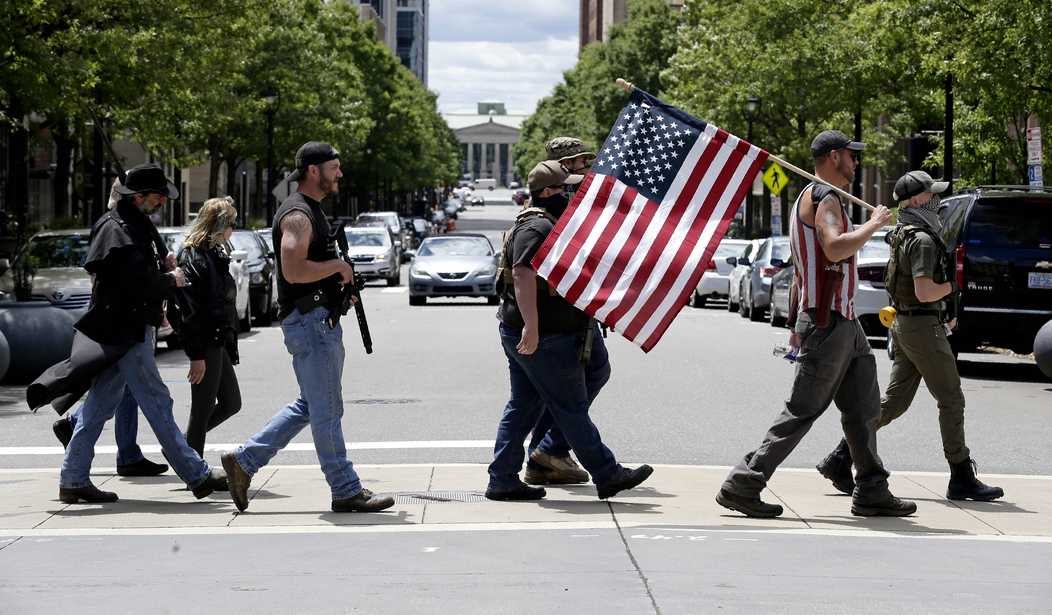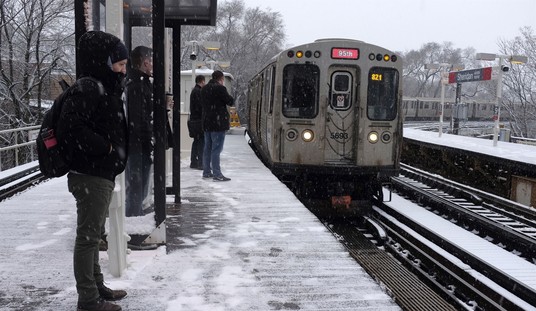I'm a big fan of all of our enumerated rights, even if I focus on our right to keep and bear arms here at this website. So I was intrigued when I saw a column by Indiana physician Raja Ramaswamy that argued we should be protecting our First Amendment rights like we do our Second; after all, we regularly document treatment of the Second Amendment as a second-class right, and I'd argue that we should be protecting our Second Amendment rights like we do our First.
Ramaswamy's first complaint is that Indiana University ended the print edition of its student newspaper, supposedly because of a deficit in its budget. The doctor, however, says the the Indiana Daily Student's print edition was cancelled and its advisor removed after "he refused an administrative order to limit content in a Homecoming issue."
The university cited a structural deficit and a move toward digital publishing. I along with many others see something else: an attempt to control editorial content. For a public university meant to foster open inquiry it sent a chilling message.
Really? I don't know if Ramaswamy is aware, but printed journalism is quickly becoming as anachronistic as telegrams. The fact that the student paper continues to exist online suggests that speech isn't being chilled. Even if the university had shuttered the student paper altogether though, so long as it didn't take action against any students engaged in independent journalism I'd say their First Amendment rights remain untouched.
Ramaswamy then complains about the Attorney General’s “Eyes on Education” portal, which launched last year. The doctor says it "invites citizens to report teachers and schools for 'inappropriate' materials or comments before claiming that though it was "marrketed as transparency, it has instead created fear."
Teachers worry that a book, a classroom discussion, or even a social-media post might trigger an investigation. While no mass firings have occurred, many educators now self-censor to avoid controversy.
National surveys show that more than half of teachers report limiting discussions about race, gender, or current events. Defenders of the portal say it gives parents a voice. But vague accusations and anonymous complaints do not empower families; they intimidate educators. The result is a culture that echoes the McCarthy era, when suspicion replaced dialogue and fear silenced dissent.
In Fishers and Noblesville, the Hamilton East Public Library Board ordered staff to remove and review hundreds of young-adult books, including titles by Indiana author John Green, for “inappropriate” content. After months of public backlash, the board reversed the policy in 2023, but librarians and teachers across the state took note. Many now hesitate to include books that could provoke complaints.
In Carmel, repeated challenges to reading lists and classroom materials have left teachers cautious about introducing complex topics. When lessons are trimmed to avoid controversy, students lose the opportunity to think critically about the world around them. These pressures, from classrooms to libraries, shrink open dialogue in communities that once valued curiosity and debate.
I hate to break it to Ramaswamy, but self-censorship is something we all engage in to one degree or another. And again, what we're talking about here isn't the Indiana government telling citizens it can't talk about a particular topic. At worst, Ramaswamy's examples are local governments imposing conditions on speech that they're paying for in the form of teacher salaries and library books.
I'm a big fan of critical thinking, but let's be honest here. In many classrooms, these complex and controversial topics aren't meant to foster debate among students. All too often they're about imposing a teacher's point of view on their students, and those students may end up self-censoring so they're not punished for having opposing viewpoints.
These moves by local governments didn't happen in a vacuum. They took place because residents are concerned about what their kids are learning in school, and if residents don't like how their local officials are handling things they can vote them out of office.
Despite Ramaswamy's plea to treat the First Amendment with the same importance we treat the Second Amendment, he never actually gets around to discussing how we treat the right to keep and bear arms. There's no doubt that Indiana does treat it as a first-class right; it's a Constitutional Carry state that doesn't charge a fee for its lifetime concealed carry permits, "gun-free zones" are few and far between, and there are no gun or magazine bans enshrined in statute. Indiana does have a "red flag" law, and while repeal of the law doesn't seem likely the legislature has at least taken steps to allow individuals to expunge "red flag" petitions from their records.
Nationally, though, I'd argue that the First Amendment still receives far better treatment than our Second Amendment rights. I don't lose my right to speak freely or attend the church of my choice when I leave Virginia and visit Maryland, but my Second Amendment rights disappear as soon as I cross the state line. There are no waiting periods on book sales and no "one-book-a-month" laws. Heck, you can pick up a copy of The Anarchist's Cookbook in every state of the union, even those places where you're not allowed to purchase or possess the most popular rifles in the country.
Ramaswamy may be concerned about free speech in Indiana, but we should honestly be treating the Second Amendment the same way we treat the First Amendment, not the other way around.
Editor's Note: The mainstream media continues to lie about gun owners and the Second Amendment.
Help us continue to expose their left-wing bias by reading news you can trust. Join Bearing Arms VIP and use promo code FIGHT to get 60% off your membership.









Join the conversation as a VIP Member